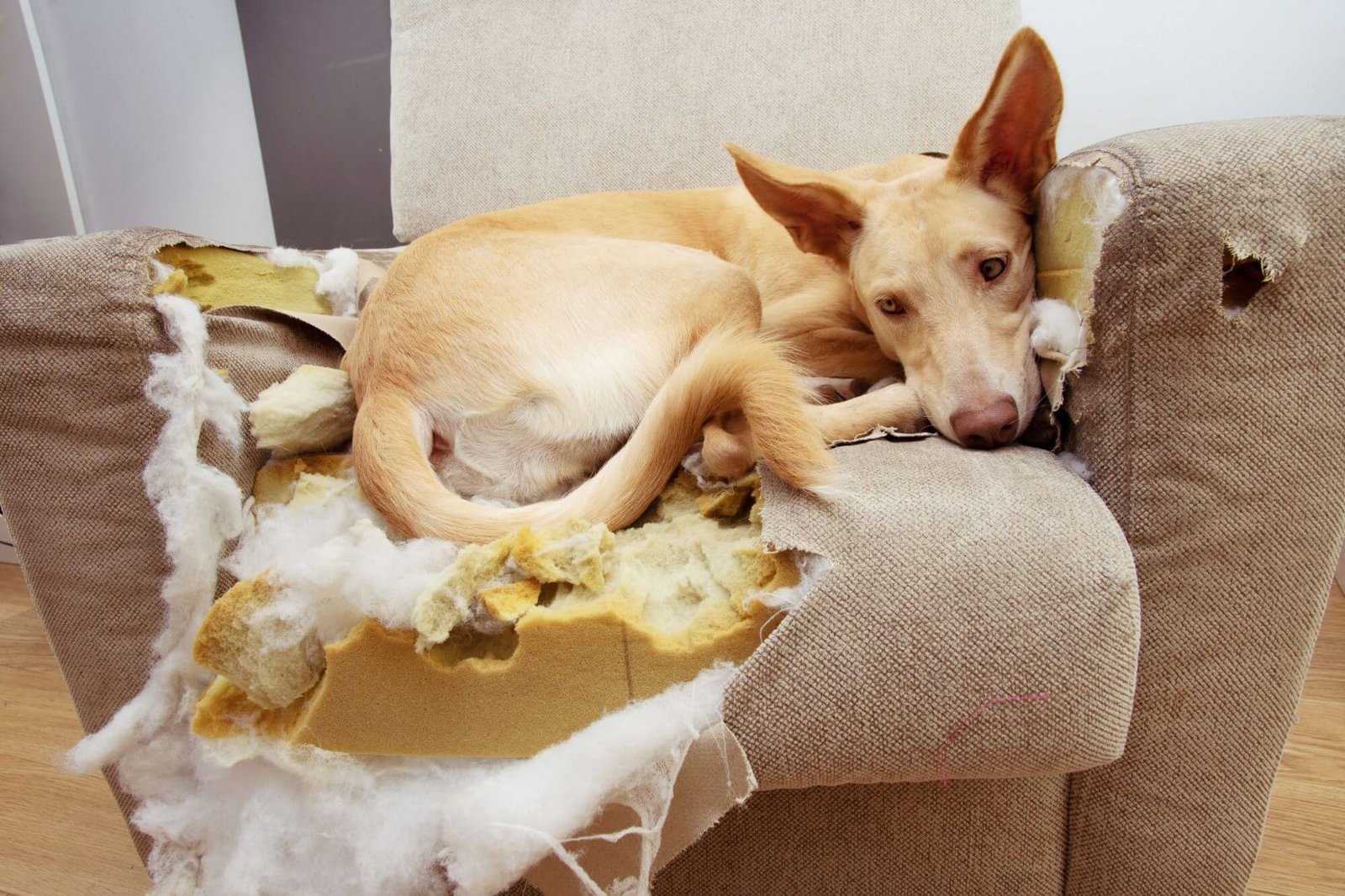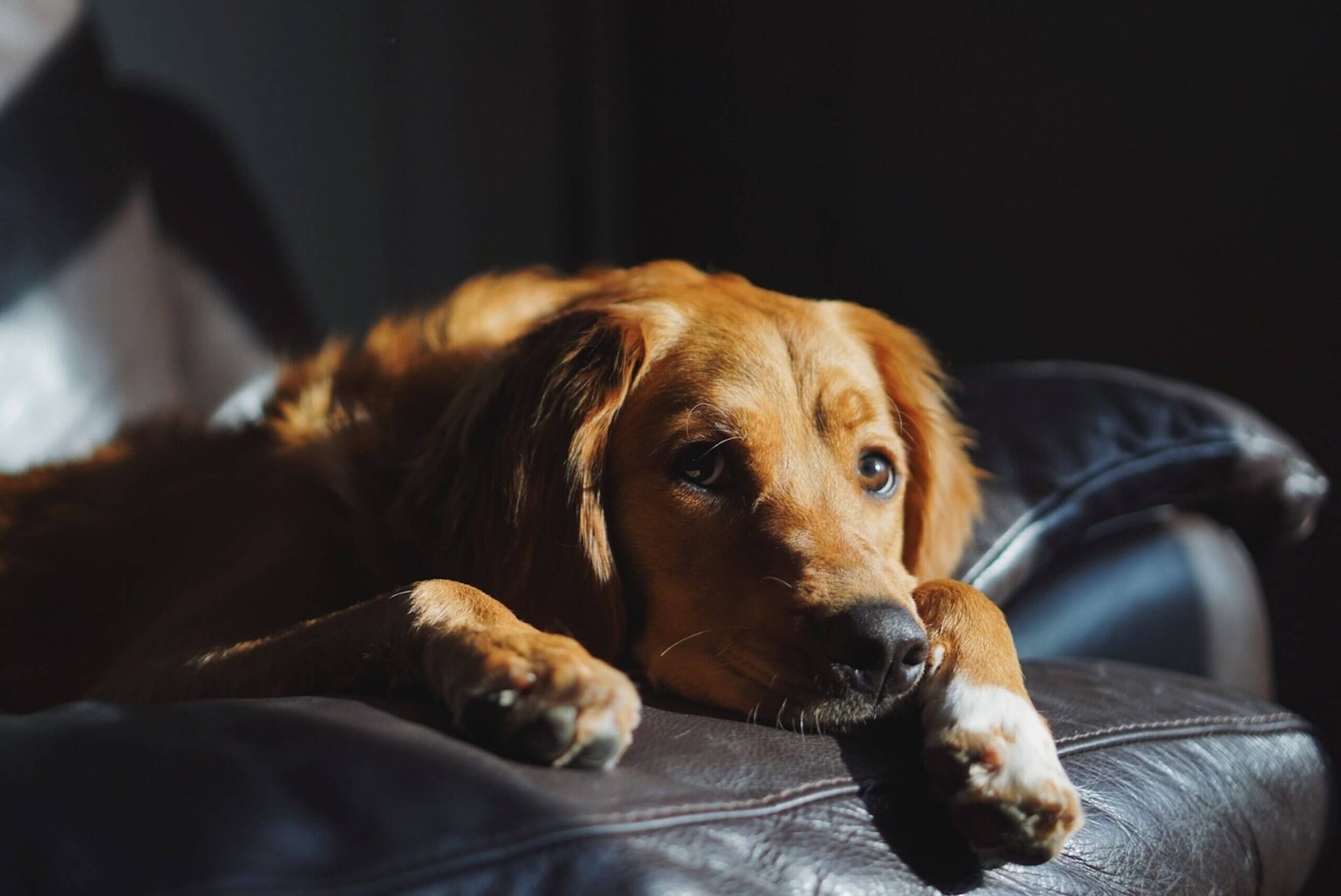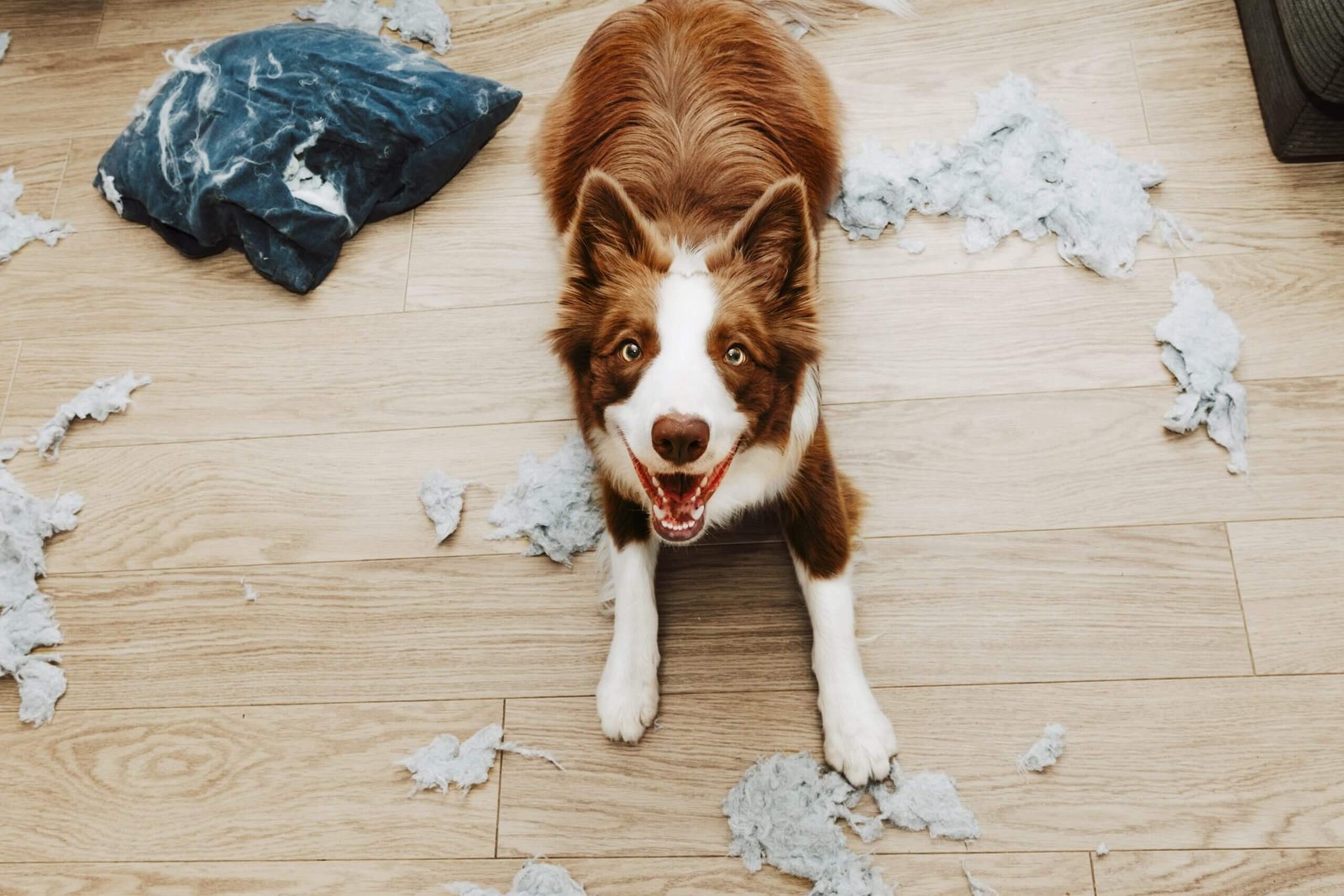You and your domestic dog have had dinner, and also, you’re, in the end, ready to veg for your couch for a relaxing night of binge-looking at your favorite show. However, your dog doesn’t share similar feelings and is pacing and whimpering to get your attention. Even though you have no plans and display no symptoms of going everywhere, your canine may exhibit signs of midnight separation tension. If your dog shows signs of separation worries after you’ve gone to bed, it could be a sign of separation anxiety. Separation anxiety manifests when a dog or cat is left home alone, whether for a vacation, a work trip, or simply because you’re at work. It can range from mild signs of distress to destructive and life-threatening behaviors, such as biting family members. Other issues like resource guarding and obsessive/compulsive disorders often accompany separation anxiety. It may even be a symptom of a different problem altogether.
While separation anxiety can manifest itself in many ways, the most common symptoms include excessive barking, whining, pacing and digging, and destruction of the residence. If left alone for too long, a dog may display more severe symptoms such as tremors, hyper-vigilance, or seizures. It’s important to note that many dogs experience separation anxiety if they are removed from their pack or injured by a family member, in which case the separation can be traumatic. While there is no cure for separation anxiety disorders in dogs (they can only be managed), there are some things you can do at home to help ease your pet’s worries and distractions during “alone time.” You’ll need to establish a consistent “alone” and “with you” routine for your dog before the separation anxiety begins. This can be achieved by giving your dog simple commands, like sit or down, before you leave the house to go to work or go out with friends. You should also establish two meals and two sleeping areas for your furry friend. It’s also vital to keep your dog’s activity level high by taking them on walks, playing fetch, teaching them new tricks, etc.

Why do dogs get separation anxiety at night?
After all, you’re domestic, and they need to feel a higher understanding which you’re settling in for the very last hours of the day. It may seem like their separation tension seems unwarranted, but there can be several reasons that nights are more demanding on your doggy. It would help if you did not take their behavior personally, even though you’re simply trying to help them. You may want to do some extra things with your dog — like have a long walk or a game of tug-of-war — and these tasks could even lower their tension levels for the night. It may seem like their separation tension seems unwarranted, but there can be several reasons that nights are more demanding on your doggy. A Dog’s Separation Anxiety. However, we cannot deny that our canine companions can act out in other ways. Several of you have already written in and mentioned that your dog has chewed through a piece of furniture or gone outside to eliminate it at inappropriate times for the original version, including any supplementary images or video.
Adjustments in the ordinary, like a large circulation, loss or advantage of a puppy/human friend, or a shift of their potty schooling schedule, are all causes for improved separation tension. As creatures of addiction, our canine pals rely upon the ordinary to feel safe and cozy. While there’s a disruption in something vital to their survival, anxiety can kick in. So even if your night plan is to be a couch potato, your dog may respond to essential instability and expected changes in their surroundings by exhibiting signs of separation anxiety. A professional dog trainer, a vet, or an animal psychologist can help. You and your canine pal get back on course with the proper separation procedures. Safety Anxiety: Wandering Off Paths, Car Scares “I’m too young to die!”
A safety anxiety problem is a kind of separation anxiety that could be triggered by specific dangers or hazards where they’re not allowed to go or by something that reminds them of those dangers. Any time a dog starts growling when you walk through the door because they are trying to protect you from some unknown threat, it might be an issue of safety anxiety. A dog with this issue may also be overly fearful of objects, people, and places that could signal a threat. Dog Instincts: The Fear of Predators “I can smell the wolf!” Others may detect possible danger in every situation and become highly vigilant to protect themselves and their canine companions. These dogs are constantly on alert to what they perceive as potential risks, whether they have any evidence or not. Their heightened concern results from an overactive “defense system,” – which can cause undue anxiety when things start going wrong at home. These dogs will have difficulty relaxing and be anxious when left alone. the wolf!” Others may detect possible danger in every situation and become highly vigilant to protect themselves and their canine companions. These dogs are constantly on alert to what they perceive as potential risks, whether they have any evidence or not. Their heightened concern results from an overactive “defense system,” – which can cause undue anxiety when things start going wrong at home. These dogs will have difficulty relaxing and be anxious when left alone.
For example, you’ll be going out for dinner extra than ordinary or pushing walks back through an hour because your work schedule has shifted. These modifications might also seem run-of-the-mill for us. However, they can prompt your dog to experience deprivation of intimacy, be unsure approximately potty time, or be involved about whether dinner will be served. A dog unsatisfied with the little modifications their owner make throughout their day can end up in an exceptionally troublesome state of mind. The melancholy and anxiety that this might induce in your dog may lead to an assortment of undesired behaviors that you’ll have to stop. To avoid this problem, it’s essential always to consider your dog’s feelings. If you feel your dog is stressed out and needs socialization or affection, talk to them while they’re calm and spend some time with them. It’s also wise to keep your dog’s schedule as normal as possible so that it can function normally. Instability in their reward systemIf your dog is rewarded regularly with dog treats, toys, and positive attention from you. Then they’ll be less likely to get bored and frustrated with the little things that don’t give them as much satisfaction. Instead of getting upset about how your dog can only have one chew toy for the day or that your pet doesn’t get as much attention as it wants, reward them regularly!
Any other commonplace issue is age. As dogs get older, their eyesight can fail, and being able to see much less at night can reason tension. They will additionally become anxious about not being capable of attaining the toilet in time. In case your dog suffers from Alzheimer’s, then they will be getting day and night stressed—insufficient exercise. The worst thing you can do is to let your dog remain bored. Dogs need daily physical work, which helps them avoid destruction and anxiety. How can you relieve your dog from stress? First, you need to list the things that concern your dog.

Then you can figure out how it is possible to alleviate their anxiety. For example, if your dog is afraid of fireworks, then maybe it’s filthy in the backyard and is scared that it might have gotten messy inside too. In this case, you could purchase a large Rubbermaid bin with holes on the bottom and place it near their bed at night. This way, they will know if they spill anything by stepping on it during the evening hours before bed. This will help them associate the bin with sleeping and feel safe in their sleep. When you allow your dog to enjoy its work, it will be seen by your dog as an opportunity for playtime and entertainment. You should provide physical work opportunities for dogs daily so that they stay mentally stimulated. This will help keep them out of trouble and safe from various problems that could have been avoided had they been allowed to exercise regularly.
How do you deal with nighttime separation anxiety?
Handling separation anxiety is typically approximately developing and sticking to a chronic. However, occasionally, other elements, including age, can come into play, as referred to. Right here are some ways to deal with the varying causes of middle-of-the-night separation:
- Increase a new routine: The curveballs that life throws at us are inevitable. From time to time, a tedious venture requires you to live at paintings longer for some time. However, this isn’t always something your canine is familiar with. Revise your cutting-edge habits or increase a brand new one and stick to it as much as feasible so your fur child may be reassured that even though there will be a few modifications, they can still rely upon you to feed and walk them often.
- Provide an indoor dog toilet: inside the occasion which you actually can’t keep routine walks, make sure to provide a pee pad like DoggieLawn. this may help puppies experience much less traumatic approximately while you’re coming domestic and allows your puppy to attend to commercial enterprise even in case you’re away. When you have a senior canine, having a few bathrooms can help them feel better about their potty alternatives.
- Spend the best time with your fur infant: playing with dogs before the night winds down is an exquisite manner to kill birds with one stone. You not best put on them out and offer a healthful outlet for their nerve-racking strength, but you’re also spending time with your domestic dog. Calming snacks can be presented as after-play time treats to help relieve some of your dog’s tension similarly.



